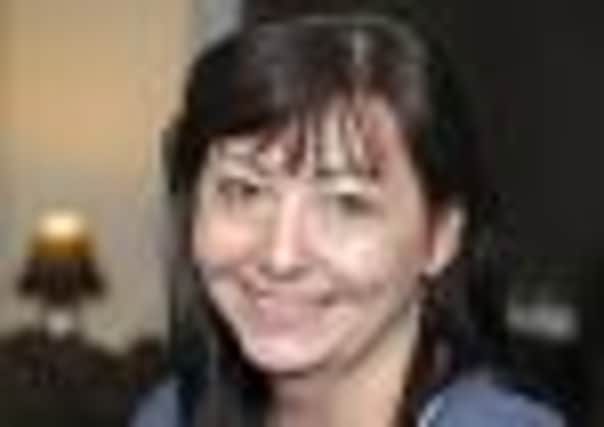Seeing the light – and everything else as well


BACK in 1991, Sarah Rylance was working in a Doncaster hospital as a student nurse.
Her job was very demanding and she often found that her glasses caused her problems in the theatre, feeling both cumbersome and heavy to wear.
Advertisement
Hide AdAdvertisement
Hide AdWithout them, however, Sarah struggled to read, set her alarm clock or simply see anything clearly; she was severely short-sighted.
Sarah decided to try contact lenses as a solution to her problem but this didn’t work for her either and before long she contracted a corneal infection from wearing them.
“I went down to see one of the surgeons who gave me some antibiotics but he also suggested a brand new treatment he was training to do called laser eye surgery,” explains Susan, who is now 41.
“I had never heard of it but I was so sick of wearing glasses and struggling with contact lenses and I trusted him so I decided to give it a go.”
Advertisement
Hide AdAdvertisement
Hide AdAt that time laser eye surgery was only being offered by Ultralase, the UK’s first vision corrective specialist.
Following an in-depth consultation process, which tested her suitability for vision correction, Sarah chose to go ahead with the surgery in 1992 after her mother offered to give her the £3,000 needed for the treatment.
At that point she could only have one eye done at a time and had to travel to Liverpool for her first treatment as it was not available in Yorkshire.
“I did think at least it is only one eye so I will still have one if something goes wrong.”
Advertisement
Hide AdAdvertisement
Hide AdBut nothing did go wrong and within 24 hours Sarah says she was astonished by the results.
“I woke up on the second night after the surgery and looked around and could see everything in my room so clearly for the first time I woke the whole house up laughing.”
The surgery took just seconds to complete and four months after the first eye was done Sarah was able to have her other eye treated, this time at St James’s in Leeds and by the surgeon who had first given her the advice.
Twenty years later, Sarah, a theatre nurse in Barnsley, is still enjoying her 20:20 vision and says she would certainly recommend corrective surgery to anyone experiencing problems with their sight.
Advertisement
Hide AdAdvertisement
Hide Ad“I was a little nervous about going ahead with, what was at the time, such a breakthrough surgery but as soon as I had my first eye treated I knew I’d made the right decision. My eyesight improved instantly and I couldn’t believe the freedom it gave me.
“I had complete trust in my surgical team, and their expertise, and that really helped to put any nerves I had to rest. The surgery wasn’t at all how I’d expected, it was over so quickly and it wasn’t at all painful.
“The best part was waking up in the morning and realising I could see instantly, it’s something that so many people take for granted but for someone that has suffered from poor eyesight it’s such a life-changing moment.
“There’s also all the little things that make a difference like not having to take your glasses, contacts and all the paraphernalia that comes with them on holiday, or simply enjoying a good swim.
Advertisement
Hide AdAdvertisement
Hide Ad“As one of the first patients in the UK to have vision correction surgery, it’s great to watch the industry grow. I know that laser eye surgery is a far more common choice for those suffering with their eyesight nowadays and, as more people like me share their stories, I’m sure its popularity will only continue to grow.”
Sarah says she gets cross when some specialists who should know better criticise the treatment.
“I hear them saying ‘within 20 years people will end up blind’ it’s just nonsense; look at me. My eyes would have continued to deteriorate but my vision has stayed perfect. I would have it done again tomorrow if I needed to.”
Starting out in 1991 with its first specialist clinic in the Wirral, Ultralase now has 31 clinics throughout UK and Ireland.
HOW IT WORKS AND WHO HAS HAD IT
Advertisement
Hide AdAdvertisement
Hide AdLaser eye surgery involves the precise reshaping of the cornea, the transparent window that covers the coloured part of the eye.
For eye treatment to be permanent, it must take place beneath the thin, protective outer layer. This layer is gently moved aside in order to let the laser do its work.
Ultralase has completed over 225,000 treatments and has improved the vision of many sporting legends, including Sir Steve Redgrave, Paul Collingwood, Sir Clive Woodward, Jonathan Edwards and Bryan Robson over the last 20 years.
For more information visit www.ultralase.com